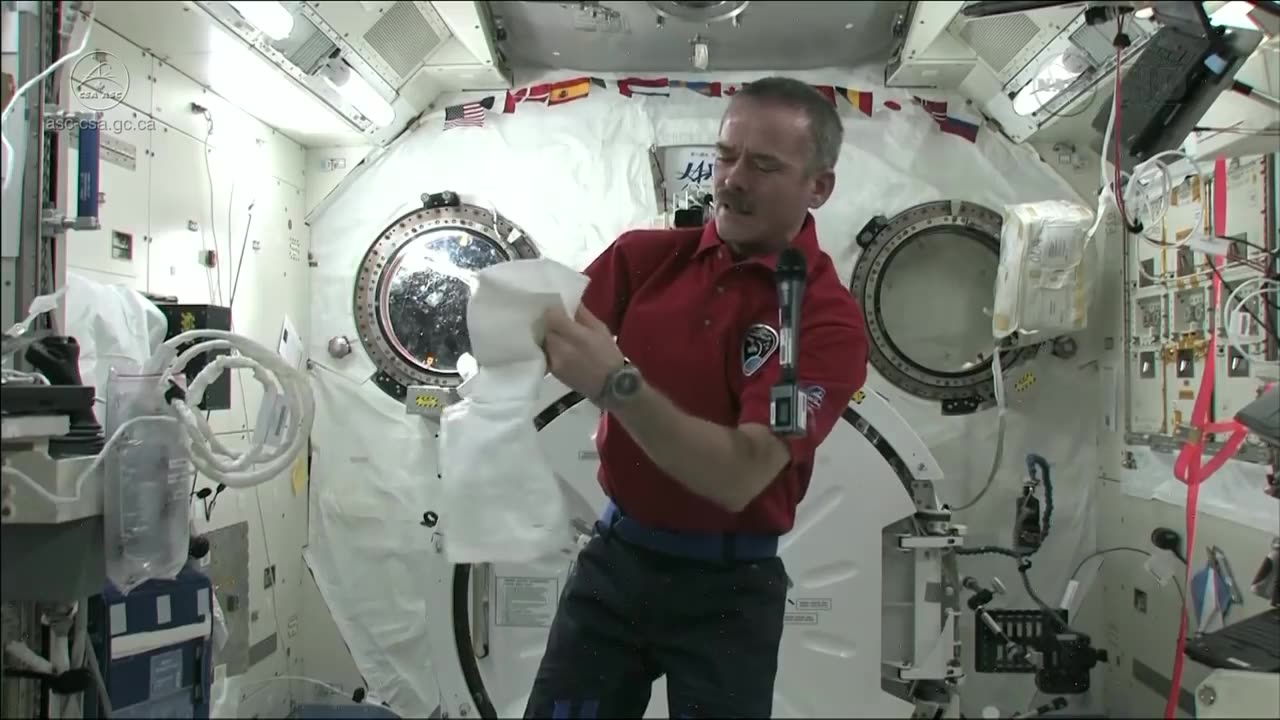Premium Only Content

GETTING SICK IN SPACE
Getting sick in space is a significant concern for astronauts due to the unique challenges of the space environment. Here are some key points for your video description:
Space Adaptation: Astronauts often experience space adaptation syndrome during their first few days in space. Symptoms can include nausea, vomiting, and disorientation as their bodies adjust to microgravity.
Radiation Exposure: Prolonged exposure to cosmic radiation in space can weaken the immune system, making astronauts more susceptible to illnesses.
Microgravity Effects: In microgravity, bodily fluids shift, which can lead to congestion and pressure changes in the head, affecting the sinuses and causing discomfort and headaches.
Bone and Muscle Loss: Extended periods in space can lead to muscle atrophy and bone density loss, which can weaken the body's ability to fight off infections.
Psychological Stress: Isolation and confinement in a spacecraft can contribute to stress and potentially weaken the immune system.
Infection Control: Astronauts are trained rigorously in infection control and hygiene to prevent the spread of illness in the confined space of the spacecraft.
Medical Supplies: Space missions carry medical supplies, including antibiotics and other treatments, to address common ailments like infections and colds.
Telemedicine: Communication with medical experts on Earth is crucial. Telemedicine allows astronauts to receive guidance and assistance with medical issues in real-time.
Long-Duration Missions: On missions to the Moon or Mars, the challenges of staying healthy in space for extended periods become even more critical, requiring advanced medical solutions.
Future Research: Scientists continue to study the effects of space on the human body to develop better strategies for preventing and treating illnesses in space
-
 3:08:35
3:08:35
TimcastIRL
3 hours agoTrump Signs GLOBAL Tariffs, Trade War Goes NUCLEAR As Market TANKS w/Mark Mitchell | Timcast IRL
152K50 -
 LIVE
LIVE
Alex Zedra
2 hours agoLIVE! New Stream Room!!!
930 watching -
 LIVE
LIVE
Akademiks
1 hour agoDay 1/30 Kanye West Interview Part 2 OTW. Young Thug Probation REVOKED? Lil Baby Putting Hits on Ppl
6,528 watching -
 DVR
DVR
Man in America
8 hours agoPam Bondi Wants the DEATH PENALTY—But Was Mangione FRAMED? The Evidence Will SHOCK You
10K5 -
 1:30:51
1:30:51
Glenn Greenwald
6 hours agoSubstack CEO on Protecting Writers from Speech Crackdowns; Week in Review: Matt Taibbi's Censorship Hearing Testimony, Fascism Expert Flees the U.S., and More | SYSTEM UPDATE SHOW #433
112K81 -

Dr Disrespect
12 hours ago🔴LIVE - DR DISRESPECT - PGA TOUR 2K25 - ONLINE RANKED UNDEFEATED
135K23 -
 1:59:49
1:59:49
2 MIKES LIVE
8 hours ago2 MIKES LIVE #200 It's our 200th Show with guests Paul Kanitra and Dan Nunn!
32.5K7 -
 21:41
21:41
JasminLaine
4 hours agoCarney HUMILIATED—Danielle Smith DESTROYS 'Garbage Polls' & Trump RUINS His Plan
36.5K22 -
 UPCOMING
UPCOMING
Film Threat
6 hours agoSUPERMAN! DISNEY! DRAGONS! LIVE FROM CINEMACON! | Film Threat After Dark
4.36K1 -
 LIVE
LIVE
DoomGnome
7 hours agoAdventures with DoomGnome: Fable Anniversary, REDUX Mod + Others, ROAD TO 500!
139 watching